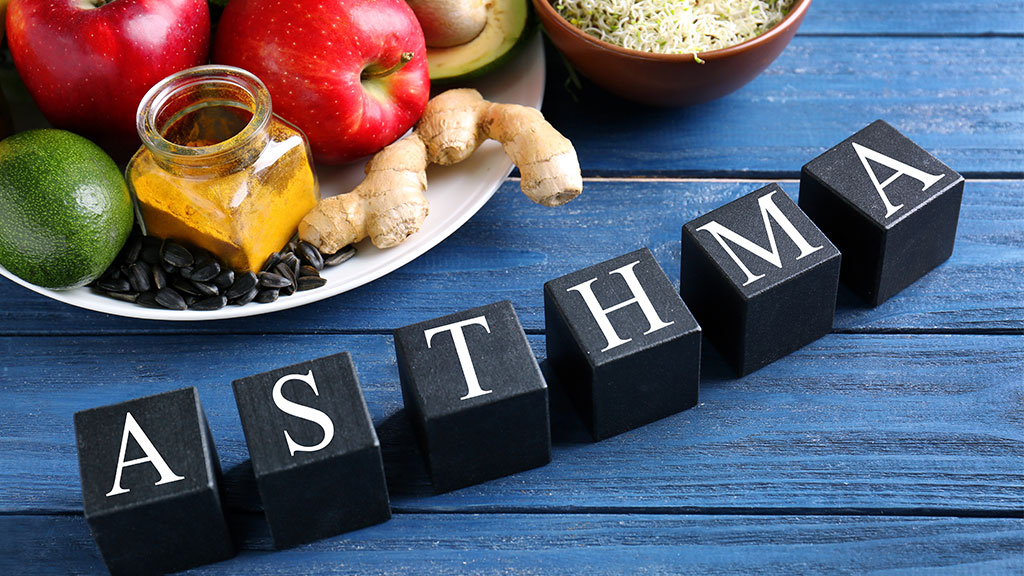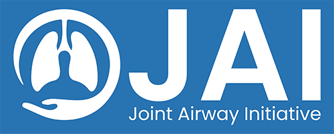
Asthma Diet Plan: What to eat and what to avoid
There is no magic pill that can cure asthma. It’s well known that people who suffer from it face persistent symptoms, including chronic shortness of breath. When it comes to diet, especially if you are allergic to certain foods, having certain restrictions can help you manage your asthma and overall health. These restrictions won’t eliminate your asthma symptoms; however, watching what you eat will certainly help alleviate some issues.
What Can Help
Fighting from a chronic disease is exhausting, to say the least, and may require several lifestyle adjustments. Stressing on dietary changes, let’s take a look at the things you should be consuming in your diet as a part of your managing your health along with your asthma treatment.
Plant-based diets: Diets emphasizing fruits, vegetables, and whole grains, while placing less emphasis on high-fat meats and dairy products, have been associated with reduced asthma risk. plant-based items have also been associated with reduced asthma symptoms in affected children. A vegan diet is free of animal products and emphasizes the consumption of fruits, vegetables, grains, and legumes. These findings suggest that a plant-based diet provides a potential treatment option for asthmatic patients.
Fruits And Vegetables: It may seem somewhat generic, but fruits and vegetables are full of antioxidants and rich sources of multiple vitamins. Vitamins C and E (found in carrots and leafy greens) and glutathione (found in avocados) can reduce swellings and inflammation in lungs caused by free radicals.
Vitamin E, especially, contains tocopherol which can significantly reduce wheezing and coughing. Spinach contains magnesium and folate, a kind of B vitamin essential to asthma patients.
Magnesium: Some studies have shown that there is a possibility that magnesium deficiency can lead to lung problems. What’s more, magnesium is usually found to be deficient in people with severe asthma. So, stay on the lookout for pumpkin seeds among other sources for essential magnesium intake.
Omega-3:Studies have shown that dietary supplements containing Omega-3 fatty acids may help people who have asthma. These polyunsaturated fats are mainly found in cold-water fatty fish oil (tuna, mackerel, etc.), flaxseed, and chia seeds, among other sources.
Vitamin D: Patients with severe asthma tend to have low vitamin D levels. While spending a few minutes under the sun certainly increases those levels, milk, and fish like Salmon are popular and widely available dietary sources. Even eggs have high vitamin D content, but certain patients may be allergic to them, so err on the side of caution.
Things You Should Avoid
You need to stop consuming any kinds of food triggering asthma. And, keeping in mind all the dietary restrictions, let’s quickly go through some of the most important things you should be avoiding.
Sulfites: Various sulfites are commonly found in food preservatives used in dried fruits, bottled lemon juices, soup mixes, potato chips, and wine. While it serves its original purpose well, its toxic effects can trigger asthma’s common symptoms. But again, this is observed in less than 10% of asthmatic patients.
Western diet: Western diets typically emphasize the consumption of animal products at the expense of fruits, vegetables, whole grains, and legumes. Asthma prevalence has increased with the westernization of dietary patterns High fat intake and low fiber intake have been associated with airway inflammation and worsened lung function in asthmatic patients.
Other Allergy-Triggering Foods: When you’re allergic to certain foods, you should avoid them to keep yourself from developing allergic reactions. For instance, peanuts can induce fatal allergic reactions in some cases and can even be a potential trigger for allergic asthma in others, leading to a steroid-dependency. Consult a professional allergist to verify which allergens are causing allergic reactions for you so you can remove them from your diet. Asthma is a common disease that affects millions worldwide, but it can be thoughtfully managed. Any comprehensive asthma management plan has to consider the dietary recommendations and restrictions you have to follow apart from the long-term medications. Along with these dietary changes, it is important to use proper inhalers to assure a good standard of life even with asthma.
Asthma is a common disease that affects millions worldwide, but it can be thoughtfully managed. Any comprehensive asthma management plan has to consider the dietary recommendations and restrictions you have to follow apart from the long-term medications. Along with these dietary changes, it is important to use proper inhalers to assure a good standard of life even with asthma.
Take home message:
Recommendations to increase fruit and vegetable consumption, while decreasing saturated fat and dairy intake, are supported by the current literature. Mediterranean and vegan diets emphasizing the consumption of fruits, vegetables, grains, and legumes, while reducing or eliminating animal products, might reduce the risk of asthma development and exacerbation. Fruit and vegetable intake has been associated with reduced asthma risk and better asthma control, while dairy consumption is associated with increased risk and might exacerbate asthmatic symptoms. Dietary components such as antioxidants, fiber, polyunsaturated fatty acids, total and saturated fat, and vitamin D consumption likely affect immune pathways involved in the pathophysiology of asthma.
References:
- “Health Benefits of Fruits and Vegetables – NCBI – NIH.” 6 Jul. 2012, https://www.ncbi.nlm.nih.gov/pmc/articles/PMC3649719/.
- “β-Carotene Is an Important Vitamin A Source for Humans.” 27 Oct. 2010, https://www.ncbi.nlm.nih.gov/pmc/articles/PMC3139236/
- “Vitamin E Isoforms as Modulators of Lung Inflammation.” 31 Oct. 2013, https://www.ncbi.nlm.nih.gov/pmc/articles/PMC3847734/
- “Magnesium sulfate for acute asthma in adults: a systematic….” 31 Jan. 2012,https://www.ncbi.nlm.nih.gov/pmc/articles/PMC3269605/
- “Vitamin B6 – Consumer – Office of Dietary Supplements – NIH.” 10 Dec. 2019, https://ods.od.nih.gov/factsheets/VitaminB6-Consumer/
- “Review: Subclinical magnesium deficiency: a principal driver….” 13 Jan. 2018, https://www.ncbi.nlm.nih.gov/pmc/articles/PMC5786912/
- “Vitamin D and asthma – NCBI – NIH.” https://www.ncbi.nlm.nih.gov/pmc/articles/PMC3427192/
- “Asthma and Sulfites: Symptoms and Reducing Exposure.” 8 Mar. 2016, https://asthma.net/triggers/food-wine-sulfites/
- “Adverse reactions to the sulphite additives – NCBI – NIH.” 8 Dec. 2011, https://www.ncbi.nlm.nih.gov/pmc/articles/PMC4017440
- “Asthma – World Health Organization.” 20 May. 2020, https://www.who.int/news-room/fact-sheets/detail/asthma
- Alwarith J, Kahleova H, Crosby L, Brooks A, Brandon L, Levin SM, Barnard ND. The role of nutrition in asthma prevention and treatment. Nutr Rev. 2020 Nov 1;78(11):928-


